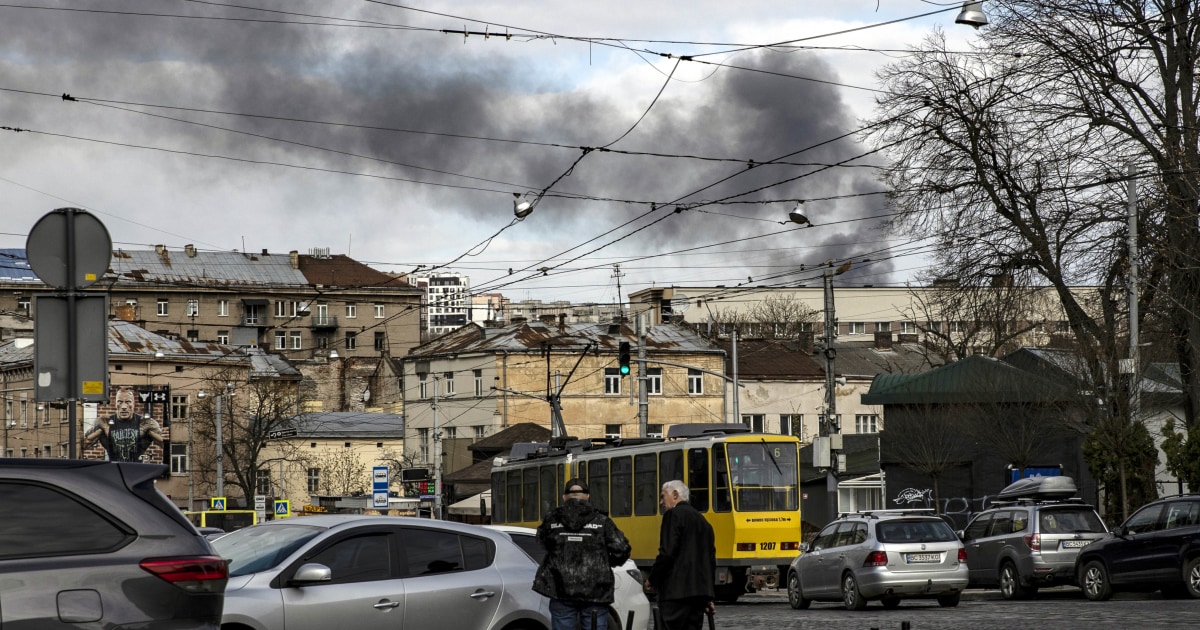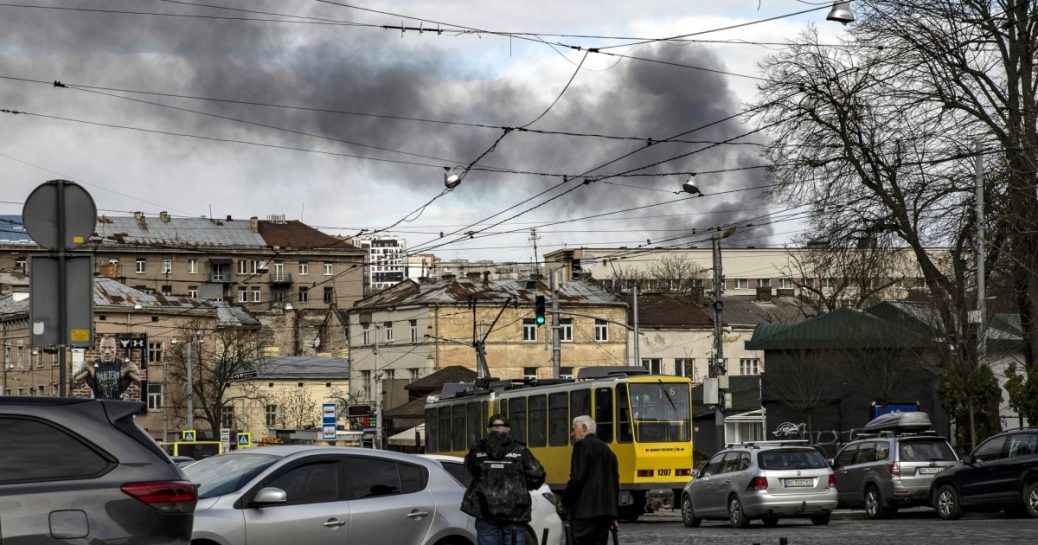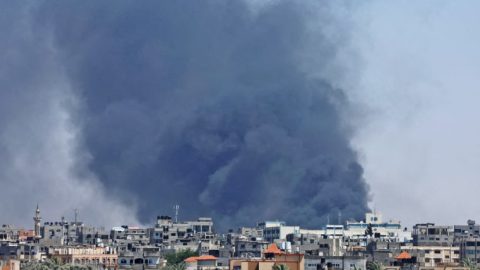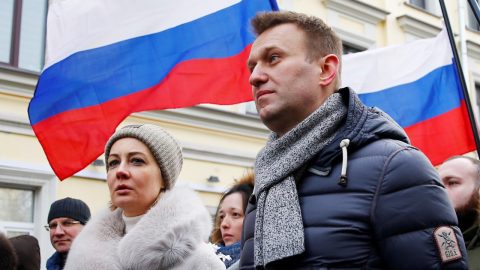
Lviv, however, had been a relatively peaceful haven during nearly two months of brutal conflict. “People are relaxed, the sun is shining [and] people can have coffee outside,” the mayor said, explaining that he understood the false sense of security that had been shattered early Monday.
But the city, now home to an additional 200,000 displaced people, is also an essential point of Ukrainian resistance.
Close to the border with Poland, a NATO ally, it is crucial to supplying forces farther east and also serves as a transition point for Ukrainian civilians as well as a hub for journalists, Western officials and humanitarian workers.
It appeared that the missiles had struck near the Lviv train station, which has become the heart of Ukraine’s mammoth effort to move supplies and people through the country and beyond.
Thousands have amassed at the railway station each day since the start of the war, many either waiting for a train heading west to start their lives as refugees, or to meet loved ones coming to join them in Lviv, where life until now has been relatively peaceful.
Oleksandr Pertsovskyi, the head of the Ukrainian Railways, told reporters that he could not speculate about what exactly the Russians were targeting, but said it did not appear to be the railway. “Some sites neighboring the railroad were hit,” he said, though he added that he hoped any damage to the railway infrastructure would be fixed by Monday evening.
A few trains were rerouted and others were held up momentarily. Though passengers temporarily escaped to shelters, the railway station reopened quickly and trains began to run normally again even as sirens continued.
Air raid sirens often go off in Lviv, but locals had begun to ignore them and go about their days.
Monday’s seemingly deadly attack, however, brought a new edge to those blaring warnings as many looked to the sky for more strikes on a city that they had believed was safe from Russian aggression.










Recent Comments